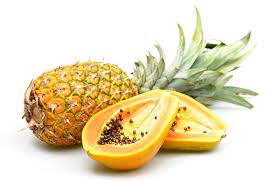Spring Beets & Citrus Detox Salad
August 2, 2024
Vegan Curry Kelp Noodles
August 2, 2024This Tiny Fruit Nosedives High Blood Pressure and Prevents Heart Attack
Nothing beats fruits when it comes to great health benefits, the tasty way.
One tiny delicious fruit has now been found to be the king of natural healing.
In fact, a new study conducted by University of Mississippi Medical Centre found that by adding this fruit to your diet, you will lower your blood pressure 7.5 points.
Even more importantly, decreases your risk of heart attack whooping 32%.
Blueberries have long been known to be the most powerful super-health-food on the planet earth, It carries more types of antioxidants than any other type of food and therefore fight free radicals and inflammations like nothing else. What’s more, they’re loaded with Vitamin C, fibre and the mineral, manganese all of which are essential for the body.
A cup of blueberries contributes only about 80 calories, so it’s a perfect snack for people on diet.
The answer is in a chemical compound called pterostilbene, which is found in blueberries and grapes. Pterostilbene helps lower blood pressure according to the findings of a new study.
A group of researchers conducted a randomized, double-blind study in which participants were administered different doses of pterostilbene extract up to 125 milligrams per day or a placebo (that does nothing).
All participants who were administered the extract showed a reduction in both systolic and diastolic blood pressure. Average drop was about 7.5 points.
Note that the researchers used extract in this study. You’d have to eat a lot of blueberries to get the same amount of pterostilbene. But since blueberries include so many other antioxidants, handful or two a day is plenty to get great health benefits.
Another research that focused on data from Nurses’ Health Study II reviewed the diets of 93,000 women. They discovered that those who included blueberries regularly in their diet were 32% less likely to get a heart attack compared to those whose diet was rich in other fruits and vegetables but not blueberries.
Both studies have one message – eat blueberries whenever you can!



